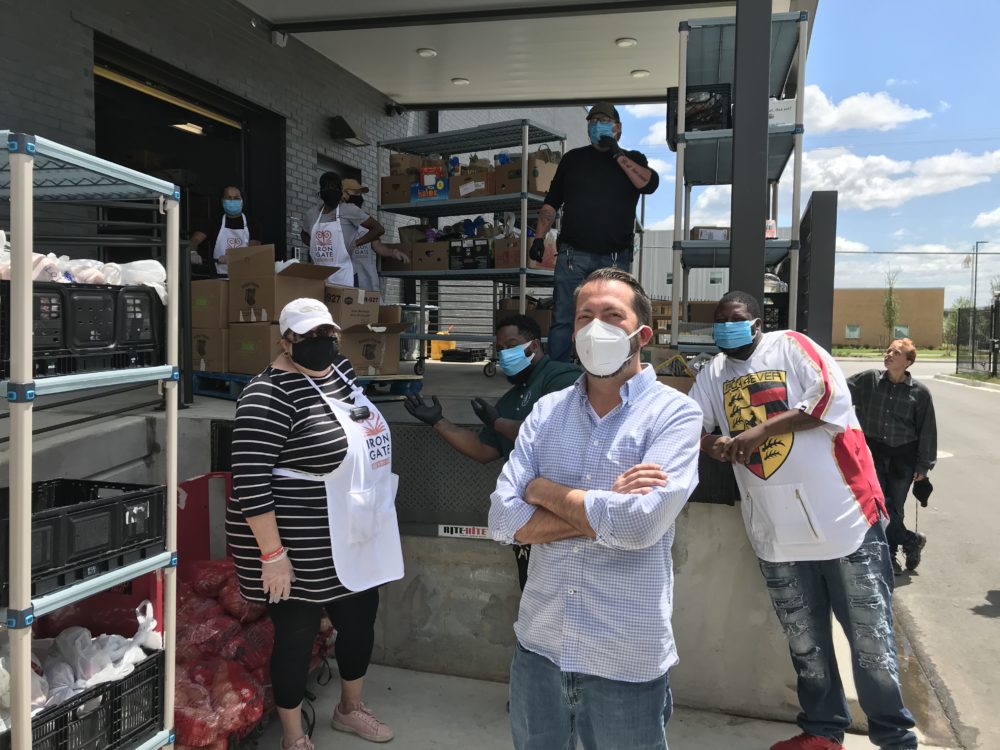Hunger Free Oklahoma works to bring a unified, statewide voice to the issues and solutions surrounding hunger, with a goal to ensure all Oklahomans have access to affordable, nutritious food. They are leveraging the power of collaboration to solve hunger in Oklahoma by improving systems, policies, and practices.
Chris Bernard is the Executive Director of Hunger Free Oklahoma.
ImpactTulsa: How has Hunger Free Oklahoma’s work with partners made a positive impact on the lives of Tulsa students and families?
Bernard: “Working together to create a Hunger Free Oklahoma, our work with Tulsa partners has helped to ensure local students and their families have access to enough food. From the beginning of the pandemic, we went to work to adapt systems, policies, and practices to an ever-changing and immediate need.
“At the federal level, HFO advocated for expansions and flexibilities in the federal nutrition programs. This included school meals being available in grab and go models without paperwork or other requirements for families, increased SNAP payments, flexibilities in administrative requirements, and additional benefits for families that relied on free and reduced lunch through Pandemic EBT dollars. Combined these various solutions brought hundreds of millions of new dollars in nutrition benefits to Oklahoma.
“As various federal relief resources and flexibilities became available, HFO worked with the state agencies to implement these benefits. Partnering with local districts and community-based organizations to utilize resources and connect families to them, we identified two specific gaps that needed to be filled: 1.) meals for parents and other household members at school sites and 2.) helping families access SNAP so they could afford groceries.
“As we continued our work in pushing out information to the public and partners and providing technical assistance, we launched Tulsa Kitchens Unite to support local restaurants and their employees while filling the gap of meals for families. The program produced over 360,000 meals for Tulsa area families over 12 weeks, supported 23 local businesses keeping their workers employed, and expanded the capacity to serve families for Tulsa Public Schools, Union Public Schools and more than 10 community partners across the city.
“In order to meet the second need of helping newly struggling families access the long-term support of SNAP, in May HFO launched a statewide SNAP enrollment assistance hotline (1-877-760-0114) which helps families apply for SNAP. Since the launch we have helped more than 1,600 Tulsa area households apply for SNAP resulting in more than $1,000,000 coming back to Tulsa to support the families and stimulate he Tulsa economy.
“Overall, through our advocacy, crisis response, and technical assistance/capacity building work we have been able to ensure that many students had access to the food they needed in a time of extreme crisis and stress, that families had an additional resource to help stretch their budgets to meet their needs, and that the organizations that served them had the knowledge and resource base to support their food needs.”
How has your work this year relied upon, inspired or cultivated your partnership with Impact Tulsa and other community organizations and school districts?
Bernard: “Solving hunger in Tulsa takes all of us. This year, our work with partners across the area, including Impact Tulsa, has grown deeper and broader. We have built new partnerships with churches, schools, and youth-serving organizations. We were able to work with Impact Tulsa to provide a regular platform for those organizations who were interested in understanding all aspects of food security: what immediate food resources are available, who needed assistance, and how to get access to long-term solutions. Our partnership also created long lasting change in terms of new networks and connections that now talk regularly about food insecurity and how to address it. The launch and utilization of Hunger Free Oklahoma’s SNAP Hotline and the increased interest of school districts and other organizations in using it as a resource for students and families they serve resulted in the hotline becoming sustainable through state support. In essence we were able to pilot, prove, and institutionalize a new program/resource in a matter of months that continues to help Tulsa families have access to food, stimulate the local economy, and support local schools. Leveraging the power of collaboration, we all came together to face this crisis and work to make sure Tulsa students and families could get their food needs met.”

